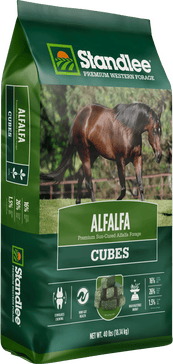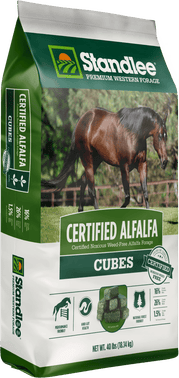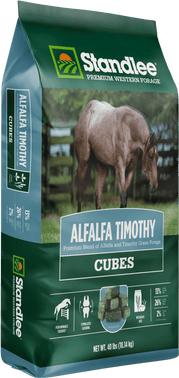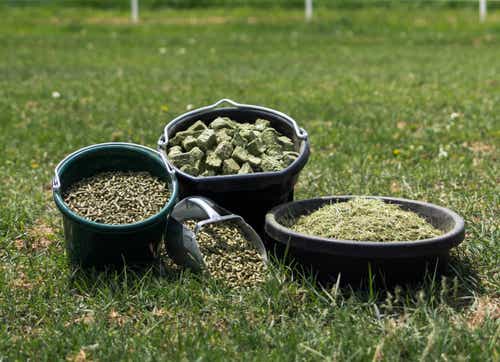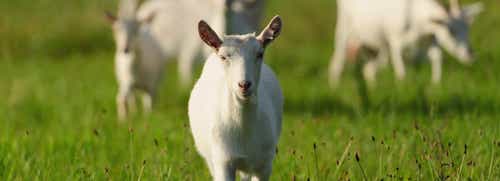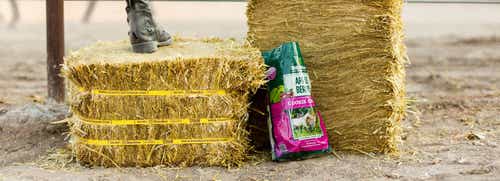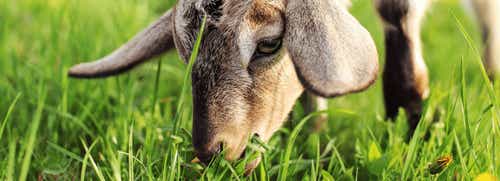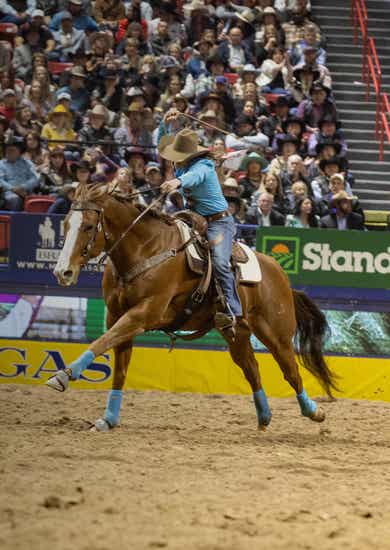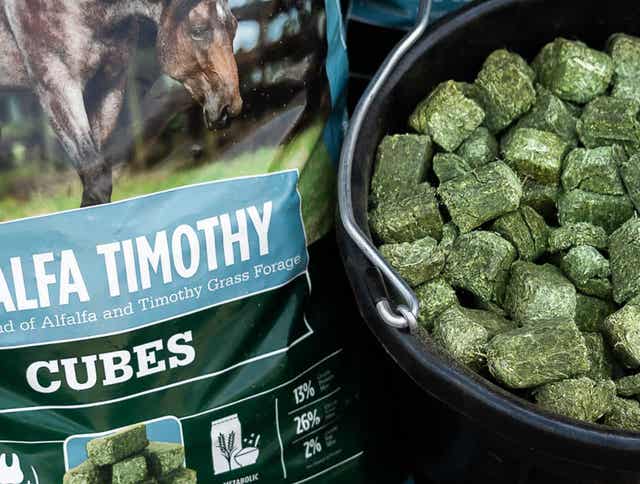
The Scoop on Hay Cubes for Horses: Benefits, Nutrition, and How to Feed Them
Are you curious about forage cubes for horses and how they compare to traditional hay? Whether you’re a new horse owner or a seasoned pro, understanding the benefits of high-quality forage cubes can help you make informed feeding decisions.
What Are Hay Cubes and How Are They Made?
Unlike pellets, hay cubes maintain the integrity of the forage’s natural fiber length, which is why they count as long-stem hay. Our cubes typically measure about 1.25 inches wide by 2.5 inches long, preserving a fiber length of approximately 2 to 2.5 inches - similar to traditional hay flakes. This fiber length supports natural chewing and digestive health in horses.
At Standlee, our premium hay cubes are crafted from the finest western-grown forage, designed to deliver all the benefits of long-stem hay in a convenient form.
- During cube production, the hay is coarsely chopped to maintain fiber length.
- The chopped hay is then compressed through a die under pressure, forming dense cubes that retain their nutrient content.
- Finally, cubes are dried to a safe moisture level for storage and long shelf life.
This process results in premium hay cubes that offer the same nutritional benefits as loose hay but with added convenience.
Why Hay Cubes Are a Smart Choice for Horses
Feeding forage cubes for horses comes with many benefits:
Easy Feeding with Hay Cubes
Cubes simplify feeding routines, reducing mess and waste, especially during travel or in tight spaces.
Hydration and Dental Health
When soaked, forage cubes become soft and easy to chew, perfect for horses with poor dentition or those who need extra hydration.
Consistent Quality and Nutrition
Unlike some local hays, Standlee’s cubes provide reliable, nutrient-dense forage year-round.
Versatility
They serve well as the sole roughage source or as a supplement to baled hay.
Because cubes maintain fiber length, they promote saliva production and slow eating - critical factors for healthy digestion. This is one reason hay cubes vs hay pellets often favor cubes when the goal is mimicking natural hay chewing behavior.
Who Benefits Most from Hay Cubes?
Horses with Dental Issues
Soaked cubes provide easily chewable fiber without sacrificing forage quality.
Underweight or Performance Horses
Alfalfa forage cubes deliver concentrated calories and protein to support muscle development and recovery.
Horses Prone to Gastric Ulcers
Alfalfa’s calcium content helps buffer stomach acid, making cubes a smart choice for sensitive stomachs.
Trail and Pack Horses
Certified noxious weed-free forage cubes for horses meet federal and state requirements for national park lands.
Hay Cubes for Livestock Beyond Horses
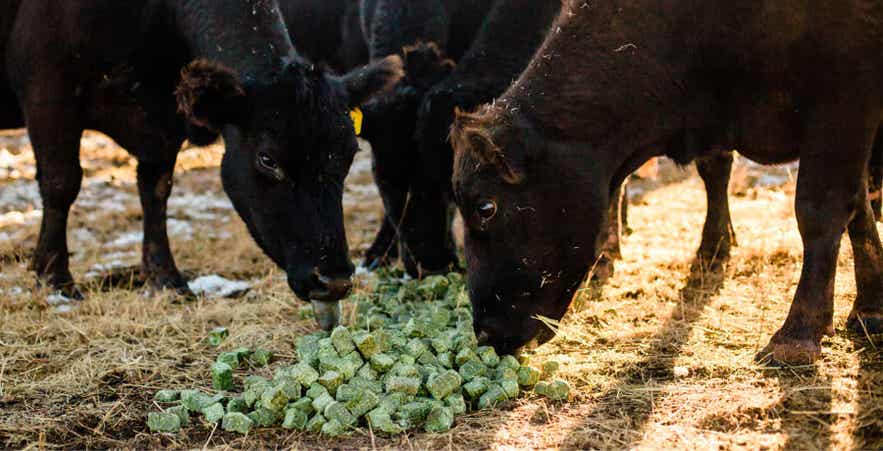
Standlee’s cubes aren’t just for horses. They’re ideal as forage cubes for cattle, hay cubes for goats, and other livestock. Easy to store and feed, these cubes offer a natural, premium forage option for a variety of animals, delivering consistent nutrition in a convenient form.
How to Feed Hay Cubes
Feeding cubes is straightforward - measure by dry weight to match your horse’s usual hay intake. For example, 1 pound of baled hay is roughly equal to 1 pound of forage cubes in nutrient content. For horses needing softer feed, soaking cubes for 15-30 minutes creates a palatable mash.
Use tools like the Standlee Feed Calculator to determine exact feeding amounts based on your horse’s weight, activity level, and forage needs.
The Final Scoop: Hay Cubes That Deliver
Choosing premium hay cubes from Standlee means choosing a natural, nutrient-rich forage option that counts as long-stem hay. Whether it’s alfalfa forage cubes, timothy hay cubes, or our blends, you’re providing your horses and livestock with consistent quality, easy feeding, and the benefits of traditional hay in a modern, convenient form.

